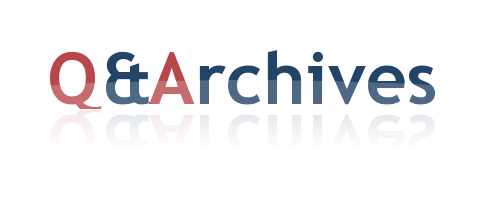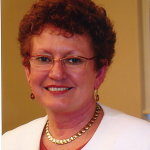One of the areas Fiona and I have been wanting to explore here at Archives Outside is a Q&A series in which we interrogate interview the staff at State Records about what they do. So we were pleased to see that this idea was also one of your suggestions when we asked “What Can We Do You For?”

We’re starting our series with Christine Yeats, the Manager of Public Access. So if you have any questions you’d like to ask her here’s your chance!
Public Access @ State Records
Making archives accessible to the public is what ‘Public Access’ is all about and the staff who work in this area provide research advice and guidance on how to find and access records in both our reading rooms, by telephone and by email.
In her role as Manager, Christine oversees the two reading rooms as well as:
- Development of online access (ie indexes and information pages)
- Liaising with community groups
- Outreach program (talks, tours and seminars)
- Permissions to publish State archives
- Production of publications and guides to State archives
- State Records access regime (ie., what records are ‘open’ and ‘closed’ as determined by government departments)
Raising awareness about our archival collection is also very important:
The State archives collection is a rich, cultural and information resource, but struggles to compete for attention with higher profile library and museum collections. State Records is committed to making the State archives collection known to a diverse range of communities and individuals across NSW, beyond our existing clients.
To raise awareness of the collection and explain how to tap into it, we organise and participate in an extensive outreach program comprising talks, tours, exhibitions, an online newsletter, educational programs, stalls, launches and other events. Through our outreach program we have built strong relationships with many of our public stakeholder groups. (Annual Report 2009-2010 p.64)
Why keep records?
The purpose of preserving the State archives collection is to make the records available to enrich the lives of people and communities, in NSW and beyond. Beyond their cultural value, archives help people to establish personal or family identity and entitlements. (Annual Report 2009-2010 p.55)

Mini biography
Read more about Christine on our Soldier Settlement website – a joint project dedicated to the memory of WWI Soldier Settlement in NSW.
Questions, questions
All going well, technologically speaking, we are planning to record the interview with Christine and upload it to the blog along with a transcription. So it will be a set question/answer style interview.
If you have any questions you’d like us to include please add your suggestions in the comments below. We may not be able to include every one but rest assured all suggestions will be taken into account. These could include aspects of Christine’s work and/or the broader challenges of providing public access in a changing environment…not, of course, why you can’t find great-great Uncle Bob and his arrival to New South Wales.

Melissa says:
Happy for the following to be made into a suitable question style structure.
I would be curious to know Christine’s opinion of the benefits/difficulties surrounding online access to documents. While the benefits definitely surround facilitating greater public access to Archives records than ever before (particularly useful for those not near an Archives office), the continuously changing nature of technology must make the development (and continual advancement) of online access somewhat difficult. This is particularly the case where previously, many sites used to just have an index available, but now, actual images of documents (both written and photographed) are now becoming the norm (which then leads into permissions required, managing access legislation etc).
In addition, I would also be interested to know Christine’s opinion on the shift in terms of how reading rooms are now used in light of the changes in technology.
And finally, I would also be curious to know Christine’s opinion on whether the changes in technology have led to more people becoming aware of the role and resources of Archives in comparison to what was previously the case say, 10 years ago.
Anthea Brown says:
Thank you Melissa! We are about to brainstorm our questions and will work these interesting ones into the list.
Everyone else, there’s still time left to get your questions in :)